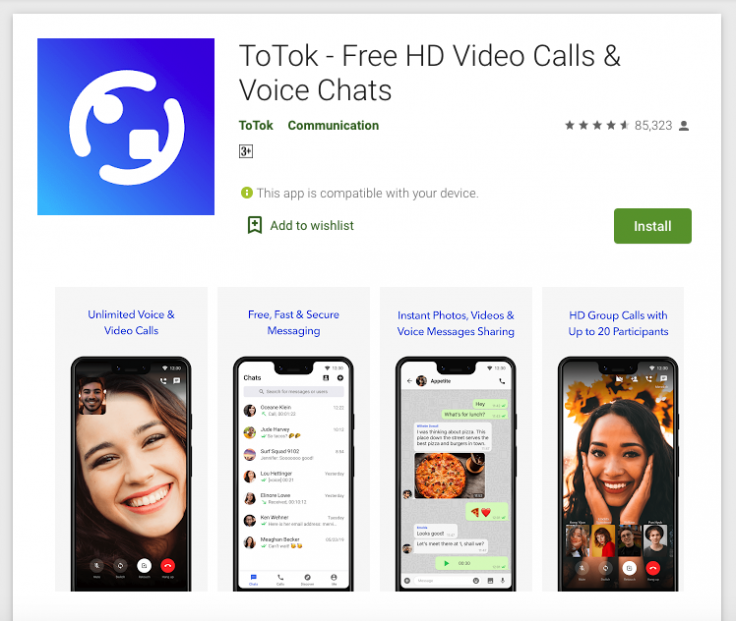Totok, the popular UAE-based messaging app that was removed from the Google Play Store, following claims that it was being used by the government to spy on its citizens, has returned to the Play Store.
ToTok returns to the Play Store
Google and Apple had pulled the app from their respective app marketplaces last month after The New York Times published a report claiming that the Emirati government used ToTok to track and monitor the conversations, locations, images and other details of users who installed the app on their devices, citing US officials familiar with a classified intelligence assessment and the newspaper's own investigation, as previously reported.
"We are happy to inform you #ToTok is now available for download on the Google Play Store," the app's official Twitter account posted on Saturday.
Dear ToTok Community,
— ToTok (@ToTokMessenger) January 4, 2020
The wait is over. We are happy to inform you #ToTok is now available for download on the Google Play Store. Thank you for your patience. Let's connect!https://t.co/lPV0DFk0dI
Your ToTok Team pic.twitter.com/aYFL5iiLIH
The app continues to be unavailable on Apple's App Store. The Cupertino-based company told AFP that ToTok was removed from its App Store pending a review, while Google said it was taken down from the Play Store "for a policy issue".
ToTok has been 'updated'
The Play Store mentions a series of "updates" to the messaging and video-calling app, including requesting access to permissions, data and a "newly designed dialogue to ask your authorisation of accessing and syncing your contact list."
The UAE has long blocked Apple's FaceTime, Facebook's WhatsApp and other calling apps in the country and the Emirati media has been lobbying ToTok as an alternative for ex-pats to get in touch with their loved ones back home for free.

ToTok requests location information
The app has gained popularity in the United Arab Emirates over the last few months for communicating with friends and family and has been downloaded by millions of users. However, users are advised to be careful when allowing permissions to the app as they could willingly be giving the government free access to their personal information.
As with many apps, ToTok requests location information, purportedly to provide accurate weather forecasts. Furthermore, it requests access to a phone's contacts, supposedly to help users connect with friends. The app also has access to microphones, cameras, calendar and other data.









